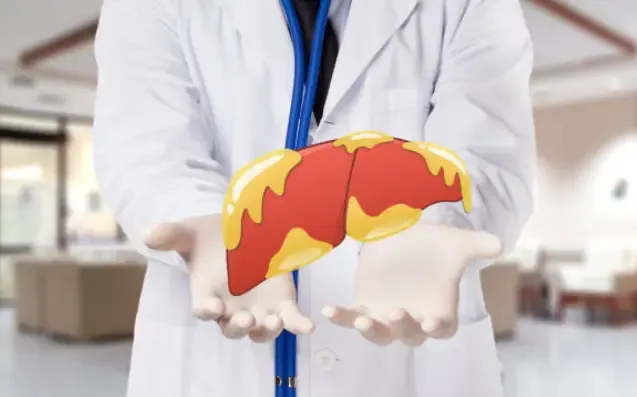Introduction
Fatty liver is a condition that affects a significant portion of the population, yet many people are unaware of its presence in their bodies. In this comprehensive guide, we will delve into the causes, symptoms, and treatment options for fatty liver. By the end of this article, you will have a clear understanding of what fatty liver is and how to address it.
What is Fatty Liver?
Fatty liver, also known as hepatic steatosis, is a condition characterized by the accumulation of fat in the liver. It is a common condition that affects approximately 30% of overweight children and 40% of the general population. Interestingly, one of the most surprising aspects of fatty liver is that it often presents no symptoms or signs, making it difficult to detect without medical intervention.
The Signs of Fatty Liver
While fatty liver may not exhibit obvious symptoms, there are a few signs that can indicate its presence in the body. The first sign is the absence of symptoms. Many individuals with fatty liver remain unaware of their condition because they do not experience any noticeable signs. The second sign is a protruding midsection. If you observe that your abdomen sticks out, it could be an indication of fatty liver.
The Relationship Between Fatty Liver and Ectopic Fat
To understand the development of fatty liver, it is important to explore the concept of ectopic fat. Ectopic fat refers to the storage of fat outside of fat cells, specifically around organs in the abdominal cavity. This type of fat, which is commonly found in individuals with fatty liver, contributes to insulin resistance and other negative health effects.
The Three Sources of Fat in the Liver
There are three primary sources of fat in the liver. Approximately 59% of the fat in the liver originates from fat in other parts of the body. This fat is transported to the liver through the bloodstream. Another 26% of the fat in the liver is produced by the liver itself through a process called gluconeogenesis. The remaining fat comes from dietary fat consumed alongside high levels of carbohydrates.
The Role of Insulin Resistance
Insulin resistance plays a crucial role in the development of fatty liver. When fat cells become dysfunctional, they start to lose their ability to take in fat. As a result, the fat is stored outside the fat cells, leading to ectopic fat accumulation. This ectopic fat contributes to insulin resistance, which further exacerbates the problem by causing the liver to produce excess sugar. Over time, insulin resistance can progress to diabetes.
The Impact of Diet on Fatty Liver
Diet plays a significant role in the development and management of fatty liver. Consuming a diet high in fructose, glucose, and refined carbohydrates can overwhelm fat cells and lead to the accumulation of ectopic fat in the liver. On the other hand, adopting a healthy version of the ketogenic diet and practicing intermittent fasting can help correct fatty liver by reducing carbohydrate intake and promoting fat burning.
Lifestyle Changes to Improve Fatty Liver
To improve fatty liver, it is essential to make certain lifestyle changes. The first step is to adopt a healthy version of the ketogenic diet, which involves consuming foods low in carbohydrates and high in healthy fats. Intermittent fasting is another beneficial practice that can help reduce fat in the liver. Regular exercise is also highly recommended as it can improve insulin resistance and promote overall liver health.
Natural Remedies for Fatty Liver
In addition to lifestyle changes, certain natural remedies can assist in the management of fatty liver. One such remedy is apple cider vinegar. Consuming one to two tablespoons of apple cider vinegar in water several times a day can aid digestion and improve blood sugar control. Milk thistle, an herbal supplement, is also believed to have hepatoprotective properties that can support liver health.
Conclusion
Fatty liver is a prevalent condition that often goes undetected due to the absence of symptoms. However, understanding the causes and signs of fatty liver is crucial for early detection and prevention. By making lifestyle changes such as adopting a healthy diet, practicing intermittent fasting, and incorporating natural remedies, it is possible to improve fatty liver and promote overall liver health. Take charge of your liver health today and embark on a journey towards a healthier you.
Disclaimer: The information provided in this article is for educational purposes only and should not be considered medical advice. Please consult with a healthcare professional for personalized guidance and treatment options for fatty liver.

